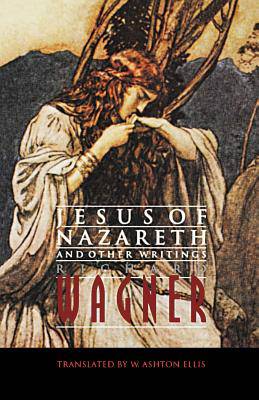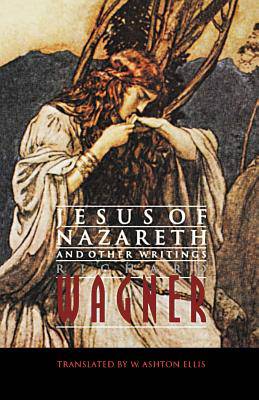
- Afhalen na 1 uur in een winkel met voorraad
- Gratis thuislevering in België vanaf € 30
- Ruim aanbod met 7 miljoen producten
- Afhalen na 1 uur in een winkel met voorraad
- Gratis thuislevering in België vanaf € 30
- Ruim aanbod met 7 miljoen producten
Zoeken
Omschrijving
Near the end of his life, Richard Wagner supervised the publication of his collected writings, providing an extensive view of his thoughts about art and politics from his youth to his final period of triumph. After his death, there was still more to be told: his admirers discovered a large number of writings he had forgotten, misplaced, never published, or had chosen to omit from his collected works. This volume, the last of eight volumes now reprinted by the University of Nebraska Press, collects the most illuminating of those works. The title work, "Jesus of Nazareth," was written in 1848 or 1849; its composition coincided with the most widespread revolutionary ferment seen in Europe. It expresses Wagner's own revolutionary ideals, thoroughly justified (or so he thought) by Jesus and the early Church. At the time Wagner considered Jesus as a revolutionary leader whose struggles with authority and traditions were much like his own. The opening work is "Siegfried's Death," a poem written in 1848 that set the tone for his most famous operatic work, the tetralogy Der Ring des Nibelungen. Whole sections of the poem were later incorporated into the fourth Ring opera, Gotterdammerung, but the differences are as revealing as the carryover. The essays that Wagner published in journals but saw fit to exclude from his Gesammelte Schriften might have embarrassed the elderly sage but are key documents to Wagner's activities in his revolutionary period. For example, his ardently prorevolutionary essay, "The Revolution," would have displeased the wealthy patrons of his later years. This edition includes the full text of volume 8 of the translation of Wagner's works published in 1899 for the London Wagner Society.
Specificaties
Betrokkenen
- Auteur(s):
- Uitgeverij:
Inhoud
- Aantal bladzijden:
- 441
- Taal:
- Engels
Eigenschappen
- Productcode (EAN):
- 9780803297807
- Verschijningsdatum:
- 1/10/1995
- Uitvoering:
- Paperback
- Formaat:
- Trade paperback (VS)
- Afmetingen:
- 137 mm x 203 mm
- Gewicht:
- 476 g

Alleen bij Standaard Boekhandel
+ 60 punten op je klantenkaart van Standaard Boekhandel
Beoordelingen
We publiceren alleen reviews die voldoen aan de voorwaarden voor reviews. Bekijk onze voorwaarden voor reviews.











